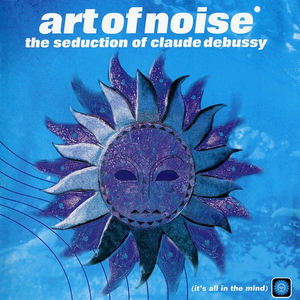The group's mostly instrumental compositions were novel melodic sound collages based on digital sampler technology, which was new at the time. Inspired by turn-of-the-20th-century revolutions in music, the Art of Noise were initially packaged as a faceless anti- or non-group, blurring the distinction between the art and its creators. The band is noted for innovative use of electronics and computers in pop music and particularly for innovative use of sampling.
From the earliest releases on ZTT, the band referred to itself as both Art of Noise and The Art of Noise. Official and unofficial releases and press material use both versions.
The Holy Egoism Of Genius
Art of Noise Lyrics
Jump to: Overall Meaning ↴ Line by Line Meaning ↴
Didn't believe in bourgeois convention. He didn't believe in Beethoven or
Wagner. He believed in... Debussy.
Debussy understood that a work of art, or an effort to create beauty, was
Always regarded by some people as a personal attack.
He hated to appear in public. Hated to conduct. Hated to play the piano at
No one was ever sure whether the spites with which Debussy armed his
Volatile sensibilities were activated by a savage insensitivity, or by the
Holy egoism of genius.
These lyrics from Art of Noise's "The Holy Egoism of Genius" reflect on the life and beliefs of the French composer Claude Debussy. The first stanza explains how Debussy rejected the traditional beliefs and values of society, including religion, the establishment, and middle-class conventions. Instead, he believed in himself and his own unique artistic vision. This is reflected in the line "He believed in... Debussy."
The second stanza speaks to the difficulties that artists face when putting themselves and their work out into the world. Debussy understood that not everyone would appreciate or understand his work, and that some may even see it as a personal attack. This sentiment is still relevant today, as many artists face criticism and rejection when trying to share their work with the world.
The final stanza touches on the idea that the line between genius and madness can be thin. Debussy was known for his volatile temperament and occasional outbursts, which could be seen as a result of his intense dedication to his craft. The phrase "holy egoism of genius" suggests that Debussy's belief in himself and his art was necessary for him to achieve greatness, but it also hints at the potential arrogance and self-centeredness that can come with such intense creativity.
Overall, these lyrics speak to the challenges and complexities of being an artist, and the ways in which individuals like Debussy can both inspire and confound us with their work.
Line by Line Meaning
Debussy didn't believe in god.
Debussy rejected the concept of a deity.
He didn't believe in the Establishment.
Debussy rejected the established systems and authorities.
He didn't believe in bourgeois convention.
Debussy rejected the norms and values of the middle class.
He didn't believe in Beethoven or Wagner.
Debussy refused to accept the artistic supremacy of the renowned composers.
He believed in... Debussy.
Debussy recognized and valued his own unique artistic vision.
Debussy understood that a work of art, or an effort to create beauty, was Always regarded by some people as a personal attack.
Debussy realized that some individuals would view his artistic expression as a direct critique of their own personal taste.
He hated to appear in public.
Debussy disliked being the center of attention in public settings.
Hated to conduct.
Debussy detested leading a musical ensemble as a conductor.
Hated to play the piano at Concerts.
Debussy loathed performing solo on the piano during live musical events.
He preferred cats to people.
Debussy favored the company of felines over human interaction.
No one was ever sure whether the spites with which Debussy armed his Volatile sensibilities were activated by a savage insensitivity, or by the Holy egoism of genius.
It was uncertain whether Debussy's reactionary behavior and emotional volatility were a result of an unsympathetic attitude towards others or a justified confidence in his own artistic intelligence.
Lyrics © BMG RIGHTS MANAGEMENT US, LLC
Written by: ANNE DUDLEY, LOL CREME, PAUL MORLEY, TREVOR HORN
Lyrics Licensed & Provided by LyricFind
